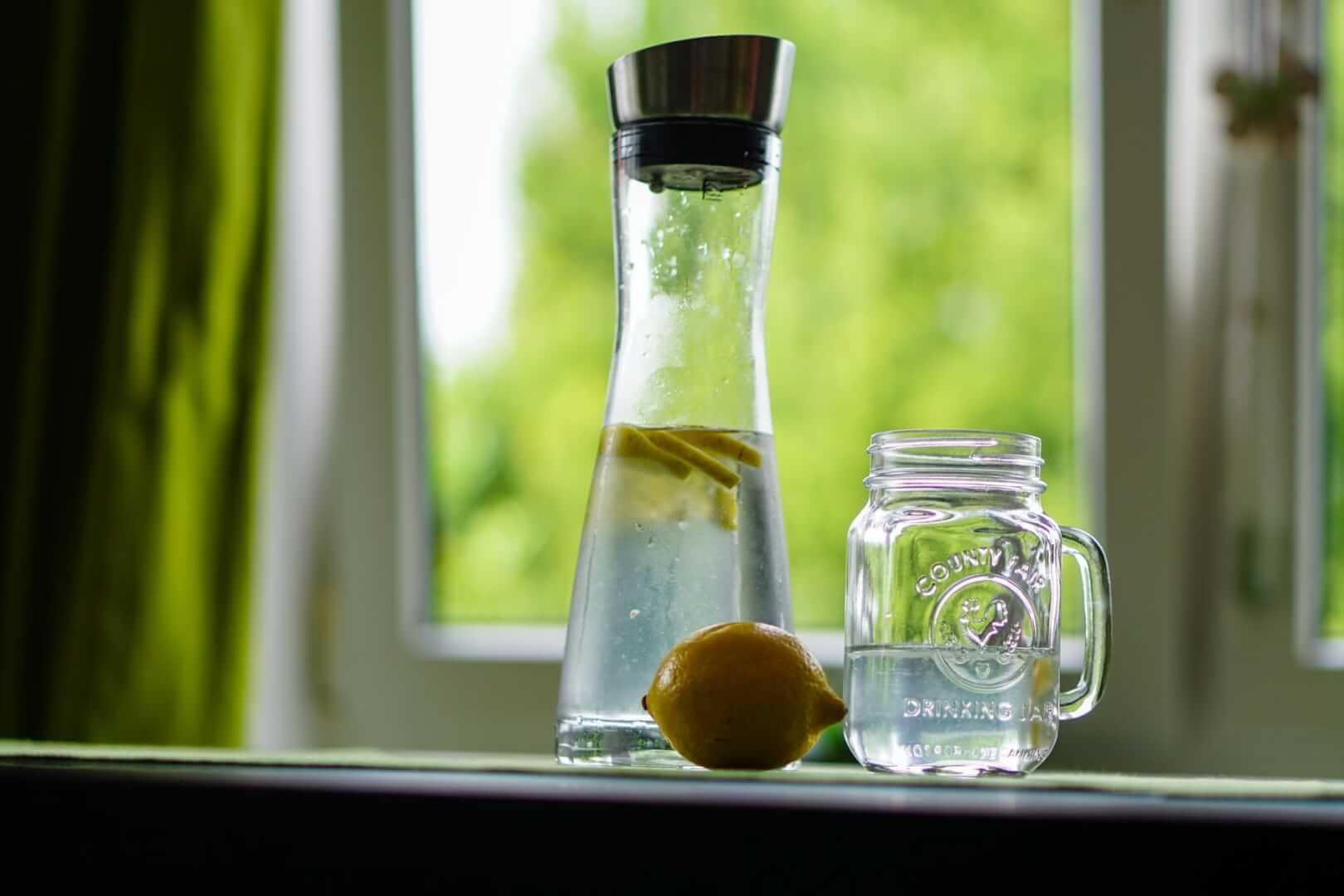A human body is made up of approximately 60%, water which is a staggeringly large number when you think about the body as a whole. Water is important for every function. Little cells, muscles and tissues are composed of water, and they are responsible for keeping your organs and systems in efficient working order. On average, to sustain water levels men should be drinking approximately 3L of water in a day (which is the equivalent of 15.5 cups) and women should be drinking 2.7L (which is 11.5 cups).
If you’re looking over at a 2L coke bottle and thinking, how can I ever down that much liquid plus a bit in a day, then let’s put the task into perspective for you by talking about the reason you need to drink so much water in a day.
Where Does Water Go?
Because the body is made up of so much water, there are also plenty of ways for the body to lose water in ways you may not realize. When you breathe, when you sweat and when you digest, your body is losing water. Things like dry weather conditions, physical activities, menstruation, and pregnancy, or being sick with the common cold or stomach virus, can also cause water loss. There are also illnesses and diseases that can cause the body to lose water rapidly.
As stated before, water helps your cells, muscles and tissues stay hydrated from head to toe keeping things like your eyes, nose, and mouth from getting dry. But there are other organs and functions inside your body that sometimes aren’t visibly noticeable when it comes to water levels, but have tremendous physical effects when there isn’t enough water.
How Hydration Affects Your Most Important Organs
The brain and heart are recorded as having a water composition of approximately 73% water amongst their other makeup. So when your body is lacking water, your brain and heart can greatly suffer. But they’re not the only organs. Technically speaking, your skin is the largest organ of your body, and it’s made up of 64% water. Then there are your muscles and kidneys—both of which are 79% water, and your bones that have about 31% water makeup. If you think about it, it’s extremely important to maintain good hydration levels to allow your body to be its best.
Water and Your Cognitive Function

Your brain is made of 60% water and is probably one of the most important organs that need hydration because it sends signals to the rest of your body for basic movements and processes.
Once a study was conducted about dehydration and driving to see what the effects of dehydration are on the brain’s function. Turns out, drivers who are dehydrated show driving patterns similar to those that are under the influence of alcohol. Unnecessary lane shifting and delayed reaction time in braking are just two of the main problems of being dehydrated on the road. And there’s also a level of tiredness that comes along with dehydration that can be deadly on the road but can be a problem with working and daily life.
There are also studies that show dehydration can make pain levels worse. It’s not clear why, but when the brain is dehydrated your body will feel increased levels of pain in the forms of headaches, muscle pain, arthritic pain, back pain and more. So if you’re dealing with pain on an everyday basis and it’s not linked to any direct health problem, then you may need to increase levels of hydration to see a decrease in pain.
Water and Lower Back Pain
One of the common conditions we treat at our Physiotherapy clinics is lower back pain and pain in the spine. But what a lot of people don’t know is that dehydration can make these pains worse. That’s because the spine is not only made of 24-vertebrae bone to protect the spinal cord, but there are also discs in between each of the vertebrae. These intervertebral discs can be described as soft-jelly like substances in the body…and as you may have guessed, they’re composed of water. These discs act as a cushion for the spine and make movements much smoother and more comfortable. So when you’re dehydrated, these discs are not cushioning your movements like they should be, and can be the root cause of back pain in the lower, mid, upper back and neck.
Why Water Is Important for Working Out

If you’ve ever worked out, you know that just a few minutes of cardio-increasing activity can leave you feeling like you haven’t had water in hours. When most people exercise, their body may already be in a state of lower hydration, making this thirst creep up faster. But even for those who are well hydrated, the average workout session will leave you feeling parched because of the energy you are exerting as well as the water lost through sweating.
If you are well hydrated, you just need to have a few mouthfuls of water every 15 minutes into your workout. But if you know you’ve been slacking on hydration, then make sure to drink a few cups of water before working out to keep your organs from feeling dehydrated and to give your body what it needs for the best workout possible. It will also prevent muscle cramps, which is a sign of dehydration whether you’re working out or not!
So Is Dehydration THAT Noticeable?
In some forms, dehydration can be extremely noticeable, like if you’re sitting out in the sun all day and start to feel dizzy and lightheaded. But your afternoon headaches may also be a result of a lack of hydration for your body. Here are more signs of being dehydrated that some people overlook:
- Darker coloured urine (medium yellow to a brown range)
- Feeling tingling sensations throughout the body
- Headaches that worsen and turn into migraines
- Sensitive vision or a general heaviness in the eyes
- A “brain fog” feeling when trying to do work or be social
- Constipation
- Increased stress levels
Sometimes we chalk these problems up to other factors when it’s really a hydration problem. But to be sure that it is just a problem of hydration, get your symptoms checked out by a doctor if it’s on a consistent basis even after you increase hydration.
How to Drink The Right Amount of Water In a Day

So back to the question of drinking the right amount of water in a day: The answer to getting enough water will have to do with your lifestyle choices. The foods we eat do contain water, especially vegetables and fruits, but it’s not enough to just rely on these and other drinks—because we hate to break it to you, but tea, juices and your morning cup of coffee, don’t really count towards your daily water intake.
So before you allow your body to slip into dehydration mode, be proactive and drink water throughout the day. Keep a water bottle on hand and be sure to drink it throughout your working hours and relaxing hours. By staying hydrated and giving your body the water it needs, you’ll be helping your organs and musculoskeletal system stay in its best form, and it will help you in addition to treatments you receive at our physiotherapy clinics in Kitchener, Baden and Waterloo.
Want More Wellness Advice?
Our team is here to improve your overall health and wellness! Be sure to follow our clinics on social media for more physiotherapy facts, wellness tips, and healthy lifestyle support.
Kitchener: Facebook & Instagram
Waterloo: Facebook & Instagram
Contact any of our LiveWell Health and Physiotherapy teams to get more information and book your next appointment. Reach out to any of our clinics and our team members would be more than happy to answer any of your questions! All of our practitioners have more tips and expert guidance to help improve the overall quality of your life.

